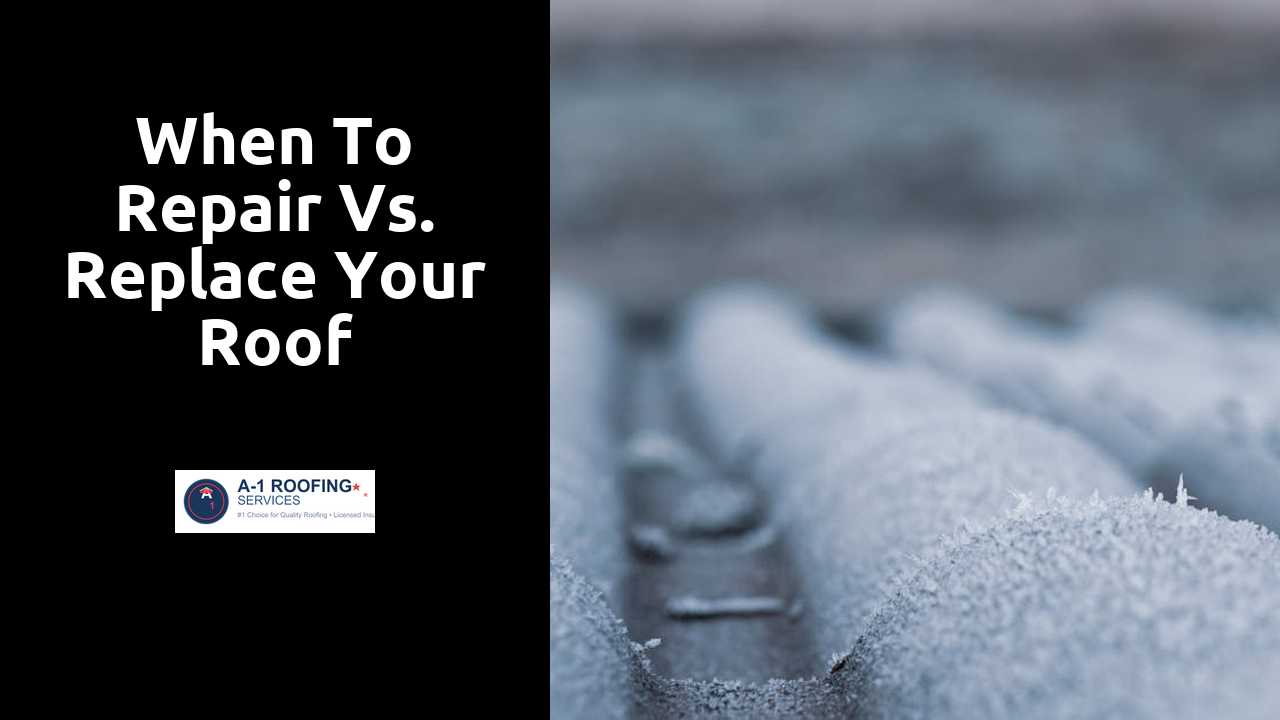
When to Repair vs. Replace Your Roof
Table Of Contents
The Benefits of Roof Replacement
Replacing a roof can significantly enhance the overall value of a property. A new roof not only improves curb appeal but also provides better protection against the elements. Homeowners often find that a modern roofing system can prevent leaks and reduce the likelihood of costly repairs down the line. This reliability contributes to peace of mind, knowing that one of the most important components of the house is secure.
In addition to aesthetic and structural benefits, a new roof can lead to improved energy efficiency. Up-to-date materials often have better insulation properties, which can regulate temperature more effectively. This improvement can translate into lower utility bills, as homes become less reliant on heating and cooling systems. Investing in a full roof replacement pays off long-term, resulting in fewer maintenance concerns and greater comfort for occupants.
Navigate to these guys for detailed information.
Long-Term Savings and Improved Efficiency
Choosing to replace an aging roof can lead to substantial long-term savings. New roofing materials often come with warranties that last for decades, protecting homeowners from unexpected repair costs. Additionally, modern roofing systems are designed to improve energy efficiency, leading to lower utility bills. Enhanced insulation and reflective surfaces help regulate indoor temperatures, making homes more comfortable year-round while reducing reliance on heating and cooling systems.
Investing in a new roof can also enhance a property’s value. A well-maintained roof is a key factor for potential buyers, indicating that additional repairs may not be needed in the near future. Up-to-date roofing can improve curb appeal and provide peace of mind for homeowners who know their investment will last. Considering these benefits, engaging in a proactive approach to roof replacement can ultimately fulfill both financial and functional needs.
When to Consult a Professional
Deciding when to seek professional guidance regarding your roof can significantly influence the outcome of your project. Homeowners should consider consulting a roofing expert when they observe signs of damage, such as missing shingles, leaks, or sagging. These issues might indicate underlying problems that require a thorough inspection. An expert can assess the structural integrity of the roof and determine whether repairs or a full replacement is the best course of action.
Engaging a professional can also be beneficial for routine maintenance. Regular inspections help catch minor issues before they escalate into major repairs. If you are unsure about the condition of your roof or have specific concerns, a professional can provide a reliable evaluation and offer tailored solutions. This proactive approach can extend the lifespan of your roof while ensuring the safety and comfort of your home.
Hiring the Right Roofing Contractor
Finding a reliable roofing contractor can significantly influence the outcome of your roofing project. Start by gathering recommendations from friends or family who have had recent work done. Online reviews and ratings from reputable sources also provide insight into the contractor's reputation. Ensure that the contractor is licensed, insured, and has experience specific to the type of roofing work you require. It is crucial to ask for references to verify their previous work and customer satisfaction.
During the selection process, don’t hesitate to request written estimates from multiple contractors. This will help you compare pricing, materials, and timelines effectively. Pay attention to the details of each estimate, as a lower price does not always equate to better value. Communication is key; choose a contractor who is responsive and transparent about their processes. Trusting your instincts can lead you to the right choice for your roofing needs.
Environmental Impact of Roof Decisions
Making informed decisions about roofing can significantly affect the environment. When homeowners choose materials that are sustainable and energy-efficient, they contribute to reducing their overall carbon footprint. Recyclable options like metal or environmentally friendly shingles can minimize waste in landfills and decrease the demand for raw materials.
In addition to material choices, the method of installation plays a crucial role in environmental impact. Proper installation techniques can enhance the roof's insulating properties, leading to reduced energy consumption over time. Selecting a roofing system that emphasizes durability also means fewer replacements in the future, which can help conserve resources and protect ecosystems.
Sustainability in Roofing Choices
Choosing sustainable materials is essential for environmentally-friendly roofing. Options such as metal, rubber, and certain types of asphalt shingles can minimize environmental impact. Many sustainable materials are highly durable, requiring fewer replacements over time. This longevity contributes to reduced waste in landfills, supporting a healthier planet.
Proper insulation plays a crucial role in the sustainability of roofing choices. Quality insulation enhances energy efficiency by preventing heat loss and reducing the need for excessive heating and cooling. This not only lowers energy bills but also decreases reliance on fossil fuels. Homeowners can consider reflective roofing options that help regulate temperature, further promoting energy conservation in their homes.
Related Links
Choosing the Right Roofing Contractor for RepairsUnderstanding the Cost of Roof Repairs